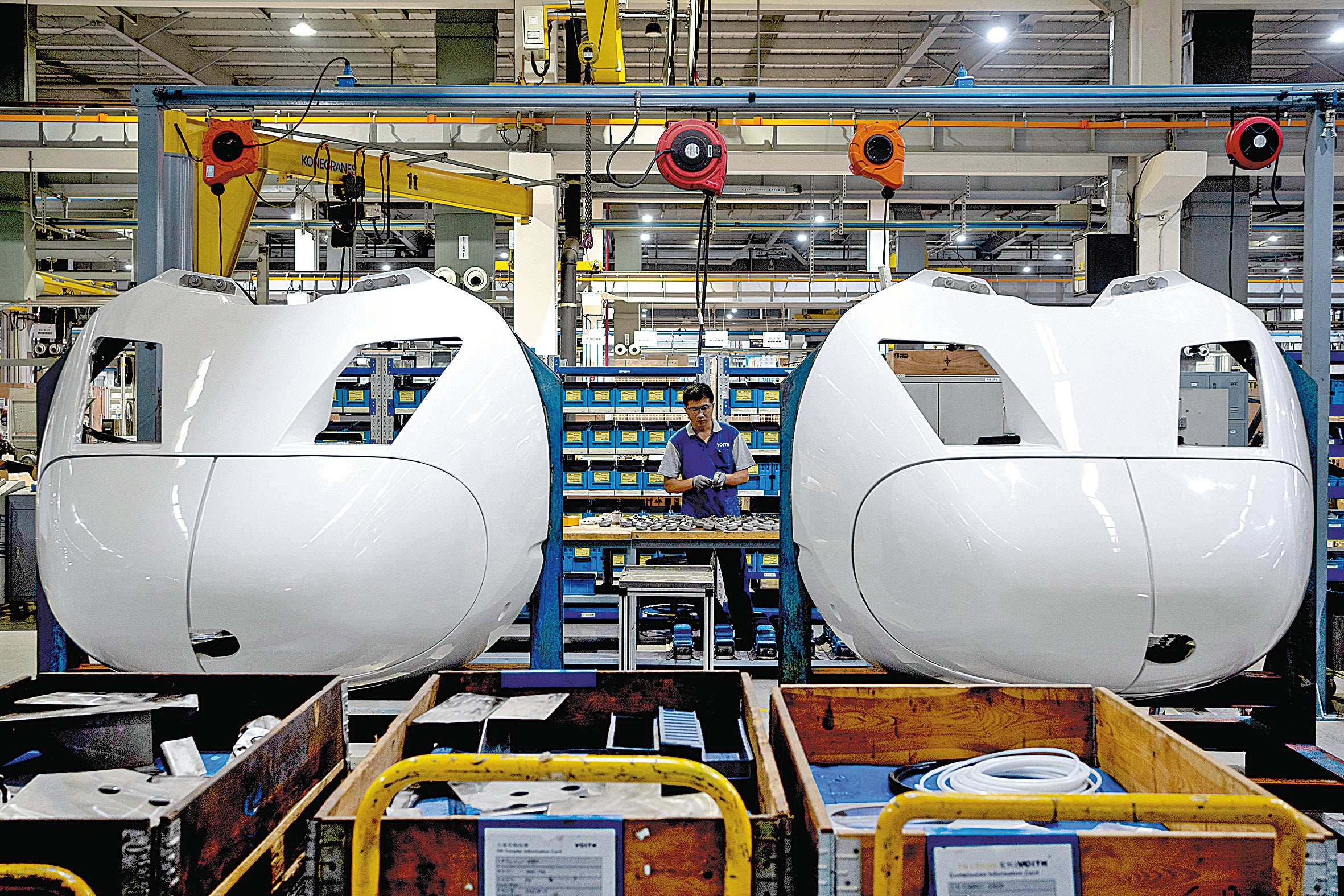Foreign companies in Shanghai recover from Covid-19 woes
THE ARTICLES ON THESE PAGES ARE PRODUCED BY CHINA DAILY, WHICH TAKES SOLE RESPONSIBILITY FOR THE CONTENTS

As businesses gradually recover from the latest Covid-19 wave in Shanghai, foreign-funded industrial companies in the city are confident about the Chinese market, while seeking out approaches to adapt their businesses to the challenging times.
The Sika Shanghai Sarnafil factory in Minhang district, under the umbrella of the Swiss chemicals company Sika Group, has resumed all production lines after being suspended from March 28 to April 26, 2022.
Zhang Yejiong, president of Sika China, said production capacity since June has rebounded to a status beyond its March level, with a 10 per cent increase.
That includes export orders delivered to Australia, Japan and New Zealand. Orders to South-east Asian countries are being processed, the company said.
“We didn’t lower our original growth target this year, and we expect revenue growth in the double digits,” Zhang said.
During closed-loop management before June, the Xinzhuang Industrial Park, in which the factory is located, provided instructions for epidemic control and disinfection, and shared resources for daily necessities for the workers living on site.
The company benefited from preferential financial policies, including tax exemptions and reductions and deferred payments of social insurance and other operating expenses such as electricity.
“It strengthened our confidence in business recovery,” Zhang said. “Although growth slowed this year because of the previous situation of two factories in the city during the temporary lockdown, we’re still optimistic about business prospects domestically.”
The green energy field is a good example representing China’s aim to reach peak carbon emissions by 2030 and achieve carbon neutrality by 2060, he said.
In the past few years the company has laid out a localisation plan in the field, covering technology research and production capacity, and achievements have been made so far.
The average annual total of domestic orders on wind-power generation moulds in Sika’s factory, in the Waigaoqiao Free Trade Zone of the Pudong New Area, in the past three years was more than 100 times the amount a decade ago.
“In addition, the infrastructure field to which the company has been dedicated has been promising due to the construction of megacities” Zhang said.
“We’ll accelerate exploration of new markets, the launch of advanced products and the application of technologies. Collaboration with domestic companies will be strengthened, too.”
The main obstacle the company faces is guaranteeing a smooth supply chain for imported materials and export orders, he said.
Similar work is also under way at the German auto parts maker Voith Turbo to mitigate the impact of the pandemic and build up resilience.
Martin Wawra, chief executive of Voith Turbo’s mobility division, said performance has not returned to the pre-outbreak level, with sales plummeting 60 per cent year-on-year in the second quarter. The Chinese market accounted for a quarter of the company’s global sales of 4.3 billion euros (£3.6 billion) last year.
Reduced demand from its customers is the main cause of the situation, after orders for heavy-duty trucks, one of the company’s key pillars, declined because of activity limits due to COVID-19 prevention measures globally since last year.
“Recovery will take time during the next six months, and we’ll take action now to reduce spending and look at the products to be offered for additional market segments,” Wawra said.
The company will drive the manufacturing of components for hydrogen energy vehicles and ships for the low carbon market.
Shi Hong, manager of the Enterprise Service Department of Xinzhuang Industrial Park, said more than 470 companies with sales income of at least 20 million yuan (£2.45 million), in the zone had fully resumed operations in June, of which foreign-funded companies account for 76 per cent. At the end of June, 11 new foreign-funded firms had settled in the park, with foreign investment of $44 million (£36.5 million).
